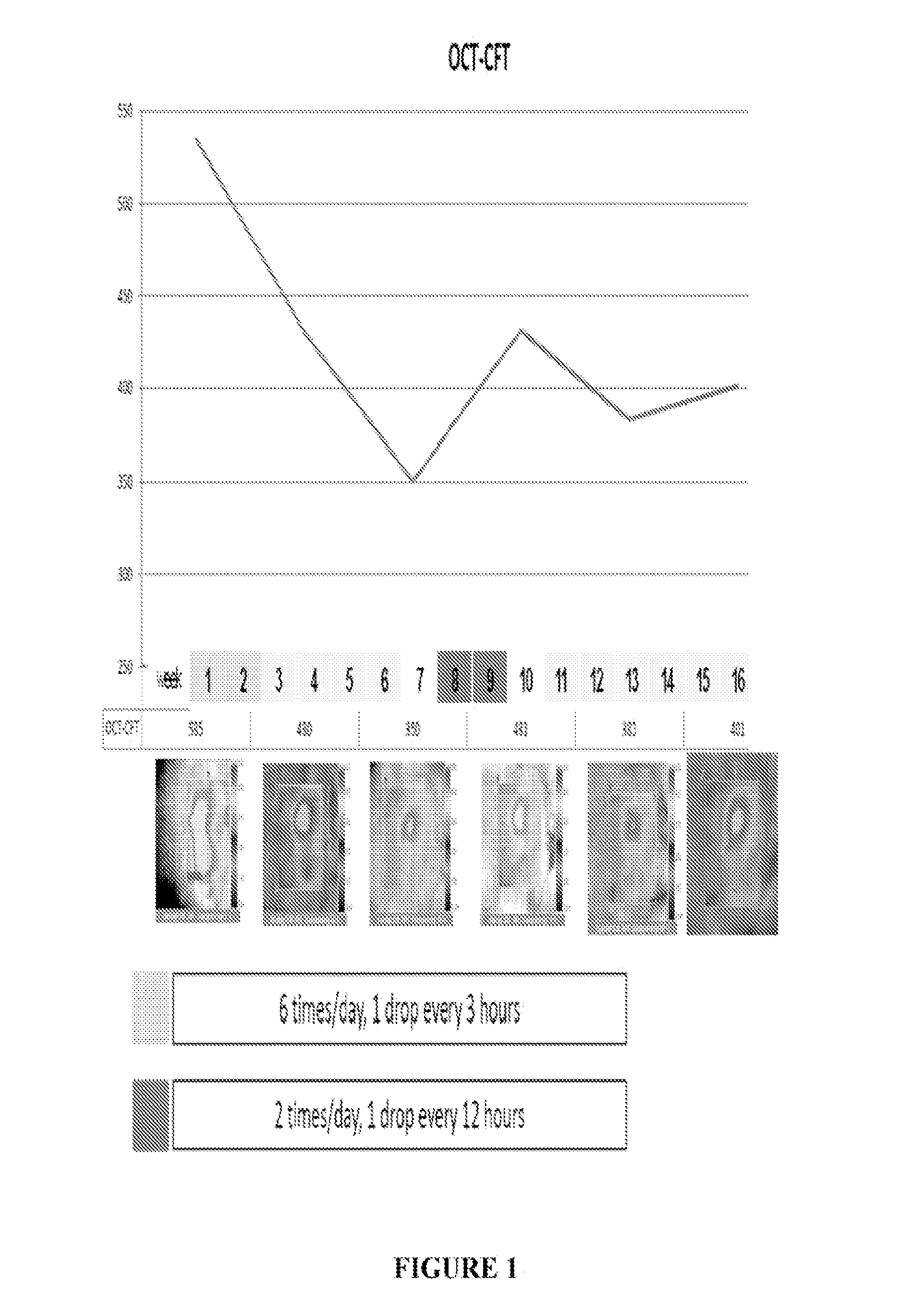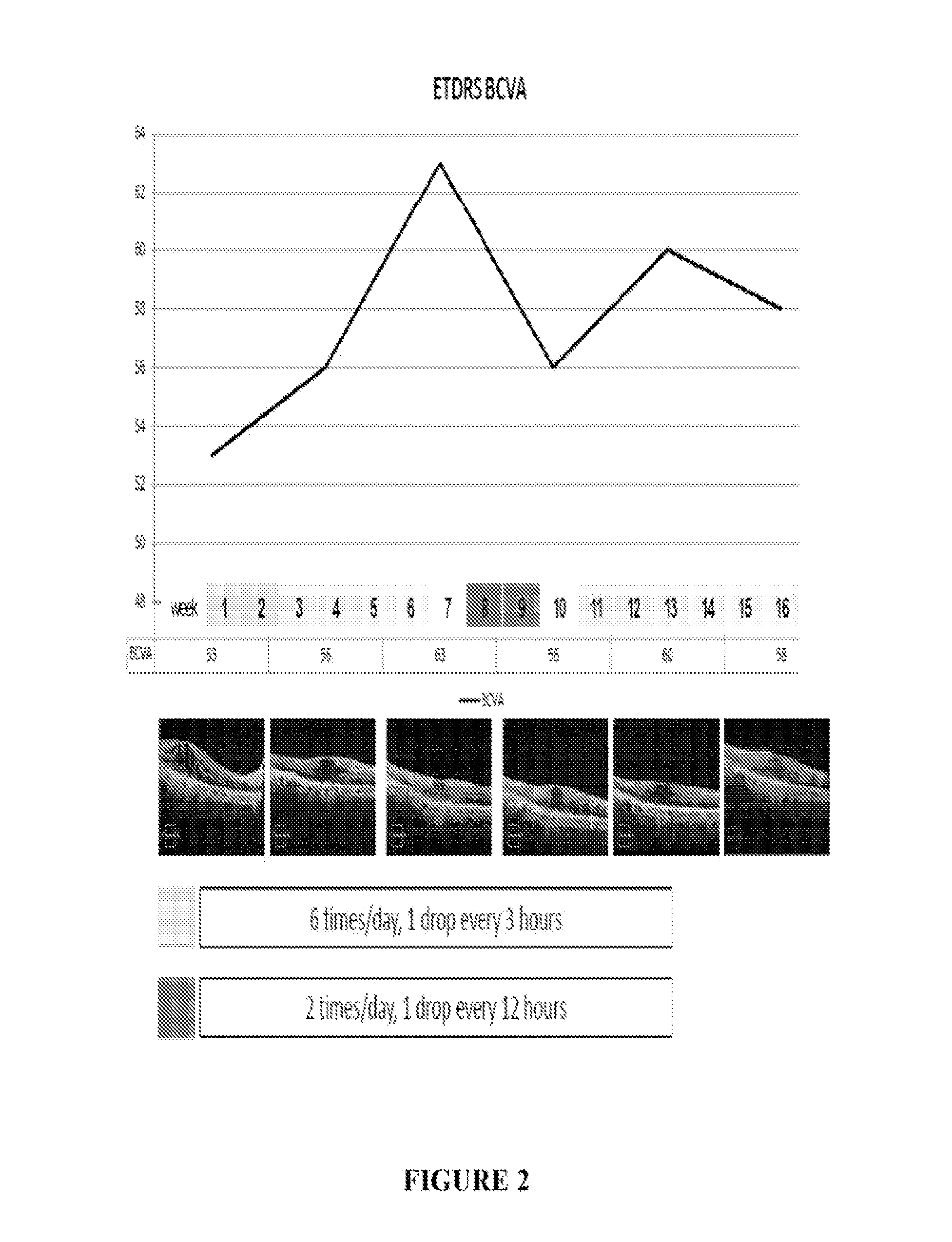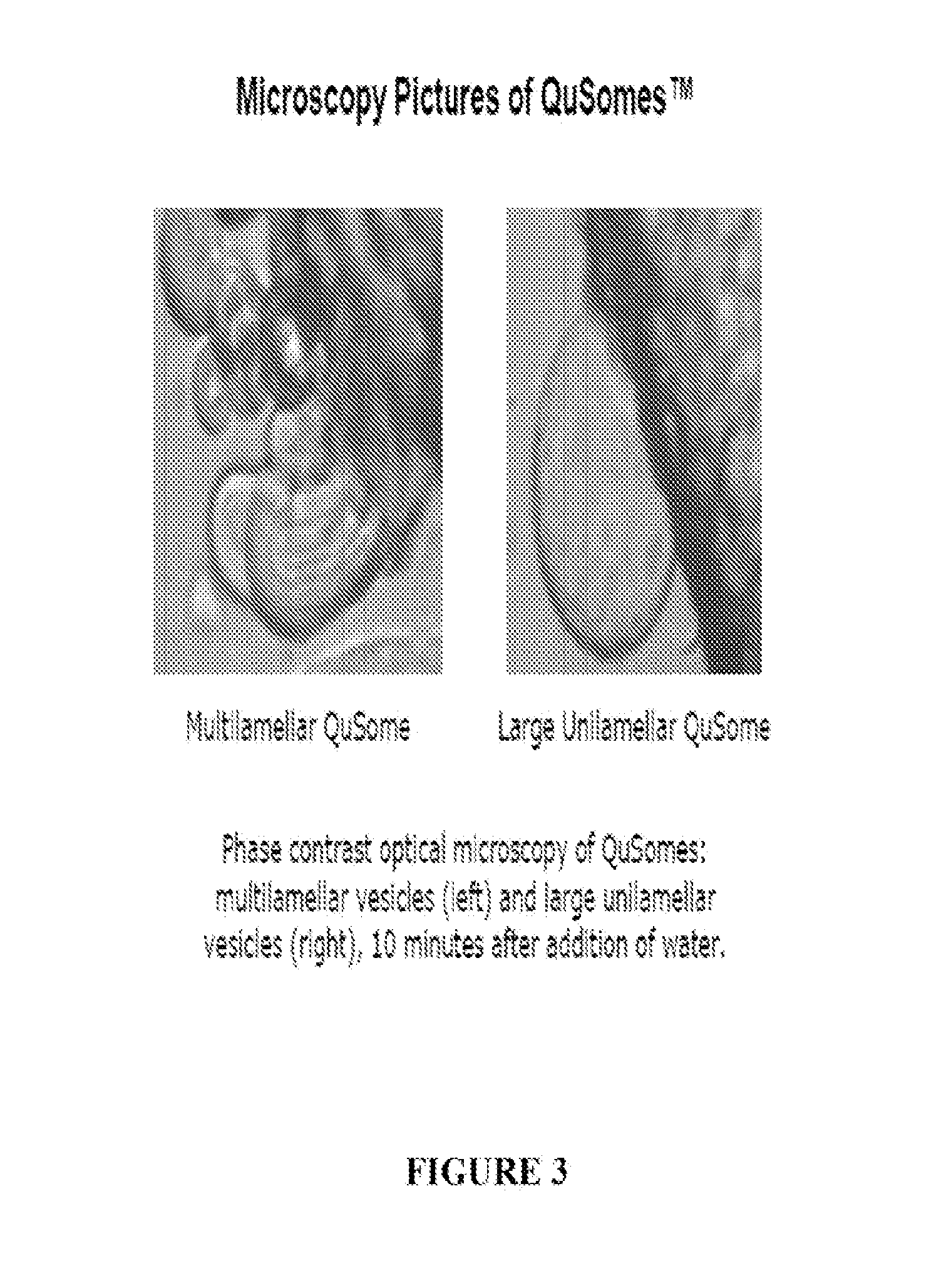Liposome formulations
- Summary
- Abstract
- Description
- Claims
- Application Information
AI Technical Summary
Benefits of technology
Problems solved by technology
Method used
Image
Examples
example 1
A Solution of Liposomes and Ranibizumab
[0050]A vial containing 0.5 mg of ranibizumab at a concentration of 10 mg / mL (0.05 mL) was obtained. 0.015 grams of PEG-12 glycerol dimyristate (PEG-12 GDM) Qsomes™ was added to this solution (the number after PEG indicates the number of C2H4O subunits in the PEG chain). The volume of this liposomal suspension was diluted to a final volume of 1.5 mL using 1.45 mL of a buffer solution consisting of phosphates, sodium chloride and polioxyl 40 stearate to provide a ranibizumab concentration of 0.333 mg / mL in the liposomal suspension and a lipid percentage of about 1% (10 mg / mL). Sodium perborate (0.28 mg / mL) was added as a preservative. 1 mL of this suspension is equivalent to 20 drops. Each drop contains approximately 17 μg ranibizumab.
[0051]The buffer solution was prepared by combining a 15 mL solution of polyoxyl 40 stearate, sodium chloride, sodium monobasic phosphate and sodium dibasic phosphate with 5 mLs of the sodium perborate solution (V=...
example 2
Diffusion Chamber Study in Rabbit Corneas
[0052]Diffusion chamber data of the liposomal formulation applied to rabbit corneas was generated using the methods described below. To summarize, samples were taken at 10, 20 and 30 minutes and at hours 1, 2, 3, 4, 5, 6 and 24. The data showed a significant rate of penetration into the aqueous humor of rabbit corneas at 34 degrees Centigrade for the liposomal ranibizumab formulation applied topically In the liposomal formulation ranibizumab was identified starting at 3 hours and remained present up to 24 hours post administration versus 7 and 14 days previously reported in the rabbit for a non-liposomal formulation (data not shown-see Chen et al., Eye London 2011 November; 25(11):1504-11.). Experiments were conducted in glass, Valia-Chen chambers with horizontal flow. The water recirculates with a temperature of 34 degrees C. A membrane was placed between the junctions of the chambers and, in this example, rabitt corneas were used as the mem...
example 3
Pilot Clinical Study on Patients with DME
[0053]A patient having DME was treated six times / day with 1 drop / every three hours of the formulation on a daily basis (6× / day) for two weeks. The total dose / day of ranibizumab was 6×17 ug or 102 ug. Improvements in loss of mean central foveal thickness (CFT) and an increase in visual acuity were seen through six weeks following this two week period (See FIG. 1 and FIG. 2). At week eight an increase in retina thickness and decline in visual sharpness occurred and, at week 10, treatment was reinitiated at two drops per day (34 ug / day). At week 14 clear tendency toward improvement in OCT and BCVA was observed (see FIGS. 1 and 2). Two additional patients were also treated using the same protocol. Results of all three patients are presented in FIGS. 4-7 and show improvement in CFT and VA relative to control.
PUM
| Property | Measurement | Unit |
|---|---|---|
| Temperature | aaaaa | aaaaa |
| Temperature | aaaaa | aaaaa |
| Temperature | aaaaa | aaaaa |
Abstract
Description
Claims
Application Information
 Login to View More
Login to View More - R&D
- Intellectual Property
- Life Sciences
- Materials
- Tech Scout
- Unparalleled Data Quality
- Higher Quality Content
- 60% Fewer Hallucinations
Browse by: Latest US Patents, China's latest patents, Technical Efficacy Thesaurus, Application Domain, Technology Topic, Popular Technical Reports.
© 2025 PatSnap. All rights reserved.Legal|Privacy policy|Modern Slavery Act Transparency Statement|Sitemap|About US| Contact US: help@patsnap.com



